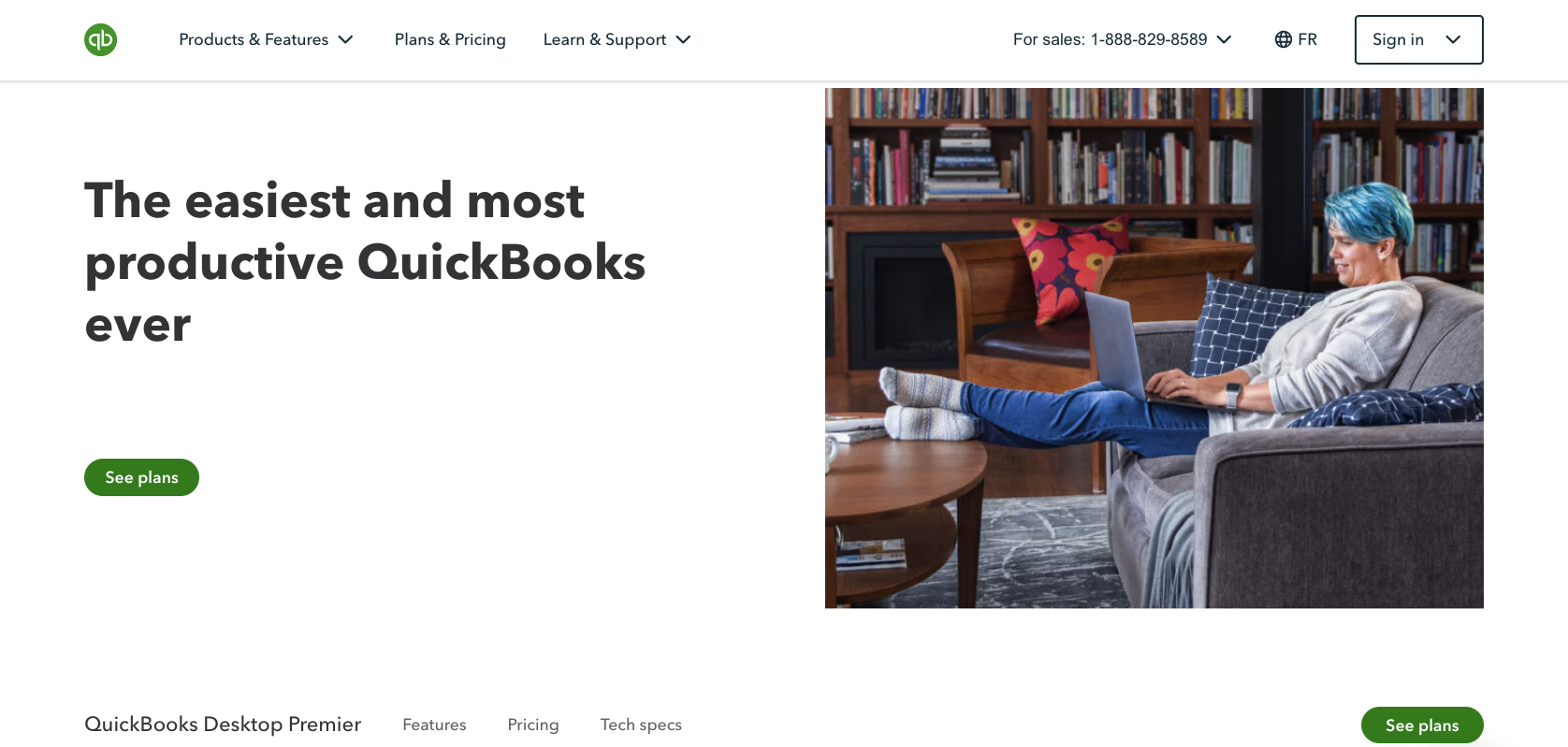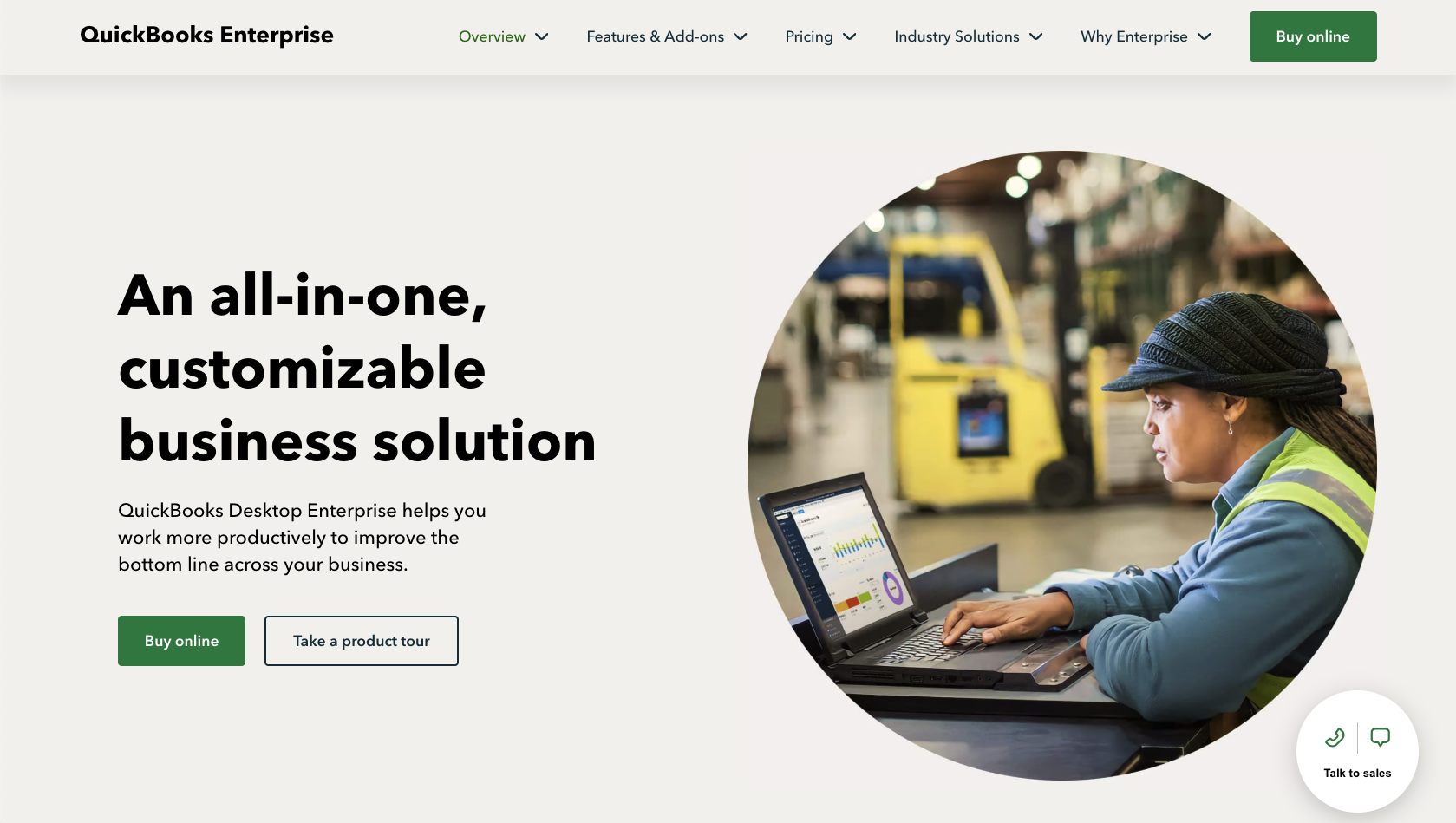When it comes to accounting software, QuickBooks has long been a favorite for businesses small and large. With its user-friendly interface and powerful features, it simplifies financial management. But if you’ve narrowed it down to QuickBooks Premier and QuickBooks Enterprise, you might be asking yourself, “Which one is right for my business?”
This guide breaks down the key differences between these two options, exploring features, pricing, limitations, and ideal use cases so you can make an informed decision.
Key differences between QuickBooks Premier and Enterprise
Both QuickBooks Premier and Enterprise are excellent tools for managing finances, but they cater to different types and sizes of businesses.
User capacity
One of the major differences is the number of users supported.
- QuickBooks Premier supports up to 5 users, making it ideal for small businesses with limited teams.
- QuickBooks Enterprise, on the other hand, accommodates up to 40 users, equipped for larger operations with multiple departments.
Advanced features
- QuickBooks Enterprise boasts more advanced features, such as enhanced inventory tracking and robust reporting tools.
- QuickBooks Premier focuses on providing efficient tools for small to mid-sized businesses, with features tailored to specific industries like retail, nonprofit, and manufacturing.
Scalability
If your business is scaling quickly—or expects to—Enterprise is better suited. It grows with you, offering customizable reports and industry-specific solutions. Premier caters to businesses looking for a reliable but simpler solution for their day-to-day needs.
Features overview: QuickBooks Premier
QuickBooks Premier is a small but mighty accounting solution. Here’s what it offers at a glance:
- Industry-specific tools
Premier provides tailored features for industries like construction, retail, and nonprofit organizations. For instance, it customizes reporting and job costing processes specific to these fields.
- Job costing
Track expenses on a per-project basis, helping businesses like contractors monitor profitability for individual jobs.
- Basic inventory management
Premier offers straightforward solutions to monitor stock, but it isn’t suited for complex supply chains.
- Reporting functions
Includes over 150 built-in reports, covering areas such as profit and loss, invoicing, and sales tax.;
Premier is best for small businesses that need robust but uncomplicated tools.
Features overview: QuickBooks Enterprise
QuickBooks Enterprise is designed for growing or established mid-sized companies. Here’s what makes it stand out from Premier:
- Advanced inventory management
Enterprise includes Advanced Inventory tools, which allow for multi-location inventory tracking, barcode scanning, serial number tracking, and FIFO (First-In-First-Out) costing.
- Customizable roles and permissions
With Enterprise, you can assign roles with specific access to ensure sensitive financial data is protected. It’s perfect for businesses with large teams.
- Extensive reporting options
Enterprise provides over 200 custom reports, powered by industry-specific tools. This ensures businesses can extract meaningful insights tailored to their operations.
- Scalability
Larger user capacity and more data handling power make it viable for businesses processing large volumes of financial transactions.
Enterprise is ideal for larger businesses with extensive inventory or complex financial management needs.
Pricing comparison
Understanding your budget is critical before making a choice.
QuickBooks Premier pricing
- Starts at $549.99 per year per user.
- Includes industry-specific features but with limited scalability.
- Most add-ons are available at additional costs.
QuickBooks Enterprise pricing
- Starts at $1,410 per year per user for the Silver plan.
- Higher-tier plans (e.g., Gold or Platinum) cost more but include additional features like enhanced payroll and inventory management.
- Enterprise pricing reflects its robust capabilities and customization options.
While Premier is more budget-friendly for smaller businesses, Enterprise offers greater value for companies with complex needs.
Limitations of QuickBooks Premier
While QuickBooks Premier has plenty of great features, it isn’t perfect.
- Limited user capacity
With support for only up to 5 users, it’s not suitable for larger teams.
- Basic inventory tools
Premier’s inventory management works well for basic needs but may fall short for businesses with intricate supply chains.
- Fewer advanced features
Compared to Enterprise, Premier lacks the flexibility and sophistication some businesses require for analytics and customization.
Limitations of QuickBooks Enterprise
Enterprise excels with advanced features, but these don’t come without drawbacks.
- Higher costs
It’s significantly more expensive, requiring a larger investment, especially for smaller businesses.
- Steeper learning curve
With its broad range of features, new users might need additional training to make the most of Enterprise.
- Overkill for smaller businesses
For businesses that don’t need advanced features or large user capacity, Enterprise can feel like too much.
Use cases for QuickBooks Premier and Enterprise
Choosing between Premier and Enterprise often depends on the nature and size of your business.
When to go with Premier
- Small businesses with simpler accounting needs.
- Industries such as freelancers, nonprofits, and local contractors.
- Companies managing projects with basic job-costing requirements.
When Enterprise Makes Sense
- Mid-Sized to large businesses with complex inventory and reporting needs.
- Operations that need multi-user access or advanced customer relationship management tools.
- Businesses managing high transaction volumes or extensive payroll requirements.
Customer feedback and G2 ratings
Customer feedback further sheds light on Premier and Enterprise. On G2, both products enjoy strong ratings:
- QuickBooks Premier has a rating of 4.3/5, often praised for its ease of use and affordability for small businesses.
- QuickBooks Enterprise has a rating of 4.5/5, with users appreciating its powerful features but mentioning its high cost.
Jotform: A Powerful alternative
If neither Premier nor Enterprise feels like the perfect fit, consider exploring tools like Jotform that pair seamlessly with QuickBooks.
- Expense tracking
Use Jotform’s Expense Report Form to track and record daily expenses easily.
- Approvals workflow
Streamline financial processes with templates like Fund Request Approval Workflow and more.
- QuickBooks integration
Integrate directly with QuickBooks to turn form submissions into invoices using QuickBooks forms.
- Customizable invoice templates
Create sleek, professional invoices with Jotform’s invoice templates.
Not only does Jotform add value, but it also simplifies workflows while integrating with QuickBooks for seamless management.
Making the right choice for your business
The decision between QuickBooks Premier and Enterprise comes down to your business’s size, complexity, and budget.
- Choose Premier if you’re a small business owner seeking straightforward tools without the added costs.
- Opt for Enterprise if scalability, advanced features, and comprehensive management tools are your priority.
Still unsure? Consulting with a financial expert can help ensure you select the software that aligns best with your business goals.
Photo by Photo By: Kaboompics.com























Send Comment: